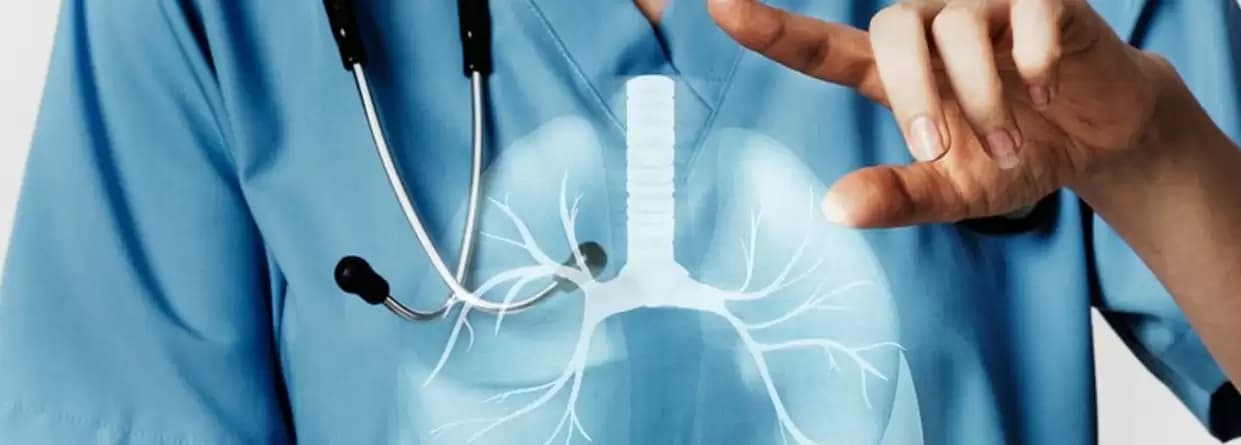
A pulmonologist is a medical specialist that diagnoses and treats diseases and problems of the respiratory system. Pulmonologists treat patients of all ages and gender including children and their specialities range from asthma to tuberculosis.
A pulmonologist is a medical specialist that diagnoses and treats diseases and problems of the respiratory system. Pulmonologists treat patients of all ages and gender including children and their specialities range from asthma to tuberculosis.
Our respiratory system includes all organs that aid breathing including the airway, lungs and respiratory muscles such as the diaphragm, intercostal muscles, accessory muscles, and exhalation muscles. The airway is the major component of the respiratory system, which comprises of the following organs:
A pulmonologist is specialized to treat conditions of any of the above organs or muscles. They have unparalleled expertise in treating respiratory disorders be it infectious, structural, inflammatory, neo-plastic, or autoimmune. In some instances, a pulmonologist can also treat cardiovascular problems, where diseases of the respiratory system such as pulmonary vascular disease have spread to affect other organs.
A pulmonologist can treat all conditions of the respiratory system; some of the common problems include:
These are only some of the common disorders treated by the pulmonologist. They can diagnose and treat various other respiratory diseases and problems.
To diagnose respiratory problems and diseases, a pulmonologist uses various tests and exams, such as below:
A pulmonologist uses various imaging tests such as below to diagnose the different structures of the lungs and chest to detect any irregularities causing respiratory problems.
Pulmonary function tests are specifically administered to assess the overall respiratory health such as lung volume, oxygen absorption, inflammation in the lungs, and others. Some common pulmonary tests include:
A pulmonologist can conduct a sleep assessment to detect problems such as obstructive sleep apnea. This test records the brain and muscle activity of a person while sleeping.
A pulmonologist can take a piece of the lung tissue or the pleura–surrounding lung membrane to diagnose any inflammation, infection or cancer.
Certain symptoms that indicate repertory issues and stress on the need of visiting a pulmonologist include:
If you are experiencing any respiratory problems, you must consult a pulmonologist at the earliest. To find the best pulmonologist in Jaipur, you can follow the following steps:
You should definitely consider getting an advanced consultation from the experienced team of pulmonologists at RBH Hospital, Jaipur.
Written and Verified by:
.webp&w=256&q=75)
Dr. Rakesh Godara is Additional Director of Pulmonology Dept. at CK Birla Hospital, Jaipur with over 18 years of experience. He specializes in ARDS, bronchoscopic management of hemoptysis, central airway obstruction, endobronchial ultrasound, and medical thoracoscopy/pleuroscopy.
Similar Pulmonology Blogs
Book Your Appointment TODAY
© 2024 RBH Jaipur. All Rights Reserved.